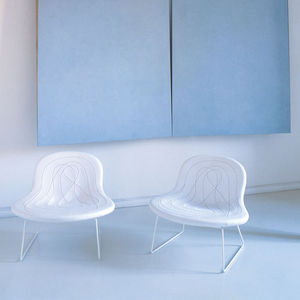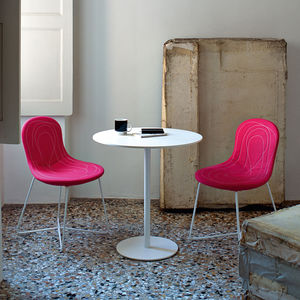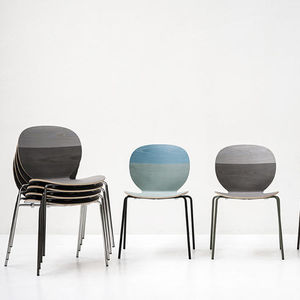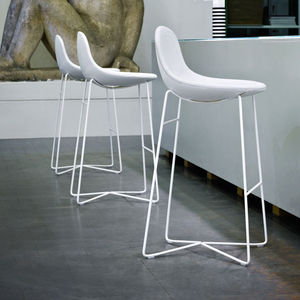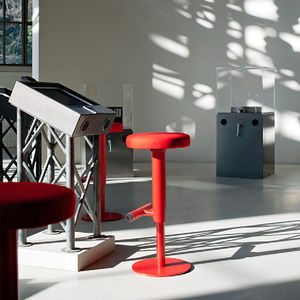
- Furniture
- Chair
- Contemporary chair
- Tacchini
- Products
- Catalogs
- News & Trends
- Exhibitions
Contemporary chair PIGRECOfabricleatherwalnut base








Add to favorites
Compare this product
Characteristics
- Style
- contemporary
- Material
- fabric, leather
- Base material
- walnut base, ash base
- Options
- upholstered
- Color
- black, brown
- Base type
- 3-legged
- Armrest
- with armrests
Description
The Pigreco chair is the first product designed by Tobia Scarpa, conceived in 1959 as a graduation project at the end of his studies in architecture at the University of Venice. The chair is the result of the designer’s early youthful intuitions. He wanted to create an object that could convey a “sense of space”, representing the concept of dynamism in a product.
The technical construction requirements led Scarpa to design a seat canonically composed of four legs, two of which are very close together, so as to guarantee solidity while remaining faithful to the concept that initially inspired it: the triangular shape. Pigreco still stands out today thanks to its two characteristic “sister legs”, joined by a simple horizontal element that increases the structural strength of the seat. This design choice gives the chair and its technical and stylistic features a unique lightness in which nothing is revealed but everything is explicit.
Pigreco is now reissued by Tacchini in the Canaletto walnut finish, also in a limited edition, and in the ash wood finish in the shades of walnut or dark grey. The upholstered cushion is available with a leather or fabric cover.
VIDEO
Catalogs
No catalogs are available for this product.
See all of Tacchini‘s catalogsExhibitions
Meet this supplier at the following exhibition(s):

*Prices are pre-tax. They exclude delivery charges and customs duties and do not include additional charges for installation or activation options. Prices are indicative only and may vary by country, with changes to the cost of raw materials and exchange rates.






